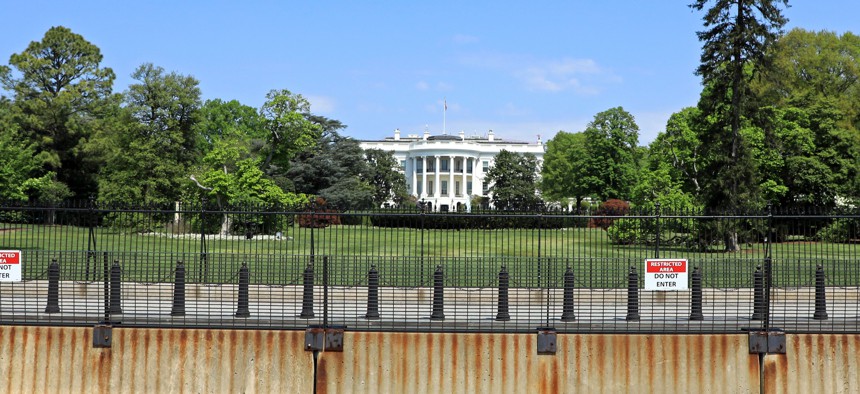White House Hasn’t Ruled Out Cutting the Muni Bond Tax Exemption

The White House South Lawn Shutterstock

Connecting state and local government leaders
“They didn’t say if it was gonna go away or not… It’s just on the table.”
WASHINGTON — A Trump administration official made no promises to a local government group this week that the income tax exemption for interest earned on municipal bonds would not be eliminated or scaled back as part of a broader effort to revamp the federal tax code.
Matthew Chase, executive director of the National Association of Counties, said during remarks at an event Wednesday on Capitol Hill that the group had met earlier in the day with a White House official. During the meeting, he said, the group pressed for the exemption to be left intact.
“We asked them to take it off the table,” Chase said. But there were no such guarantees from the official. “They didn’t say if it was gonna go away or not,” he said. “It’s just on the table.”
Chase didn’t want to reveal who the White House representative was that NACo had met with.
Oklahoma City Mayor Mick Cornett was also at the event where Chase made his remarks. Cornett, a Republican, is the current president of the U.S. Conference of Mayors.
He noted a meeting members of the conference had with Trump in December. The then-president-elect indicated during the sitdown that he was supportive of the “muni” bond tax exemption, according to mayors who were in attendance.
“Since I haven’t heard that said since,” Cornett said, “I would love to hear some reassurance from the White House that they still feel that strongly about this very important tool.”
The tax exemption is believed to keep interest rates down for state and local governments, making it easier for them to borrow for infrastructure projects, like highways and waterworks.
But critics say it costs the federal government money in foregone tax revenue, while benefiting investors. And there are questions about whether the exemption is the most efficient way to subsidize investment in infrastructure.
There was about $3.8 trillion of municipal securities outstanding in the final quarter of last year, according to a report from the Federal Reserve.
U.S. Treasury Department figures rank the exemption 15th on a list of federal income tax breaks and show it will put an estimated dent in federal revenues of around $31.9 billion in 2018.
The White House released a one-page description last month of Trump’s plan for revising the tax code. It was mum on the topic of municipal bonds, but did call for eliminating “targeted tax breaks that mainly benefit the wealthiest taxpayers.”
U.S. Commerce Secretary Wilbur Ross, while serving as an adviser to Trump during last year’s presidential campaign, co-authored a paper about Trump’s infrastructure plans. The paper argues that there are problems with using tax exempt municipal bonds for public infrastructure.
Among those problems, according to the paper: not all projects meet complex eligibility rules for municipal bond financing, and government construction projects tend to be more expensive than those undertaken by the private sector, offsetting the benefit of lower interest rates.
The paper outlines a federal tax credit program, which would be designed to attract private investment for infrastructure projects. It also says that Trump backs the concept of the Build America Bond program, which involved government borrowers issuing taxable bonds. The bond program was enacted in 2009, during the Great Recession, but expired at the end of 2010.
U.S. Transportation Secretary Elaine Chao said this week the White House would aim to release a document later this month outlining a vision and principles for an infrastructure spending proposal that would likely call for $200 billion in direct federal funding, which could be used to “leverage” $1 trillion in investment.
Bill Lucia is a Senior Reporter for Government Executive’s Route Fifty and is based in Washington, D.C.

NEXT STORY: Hartford Suffers Downgrade, as Connecticut Struggles With Its Budget





